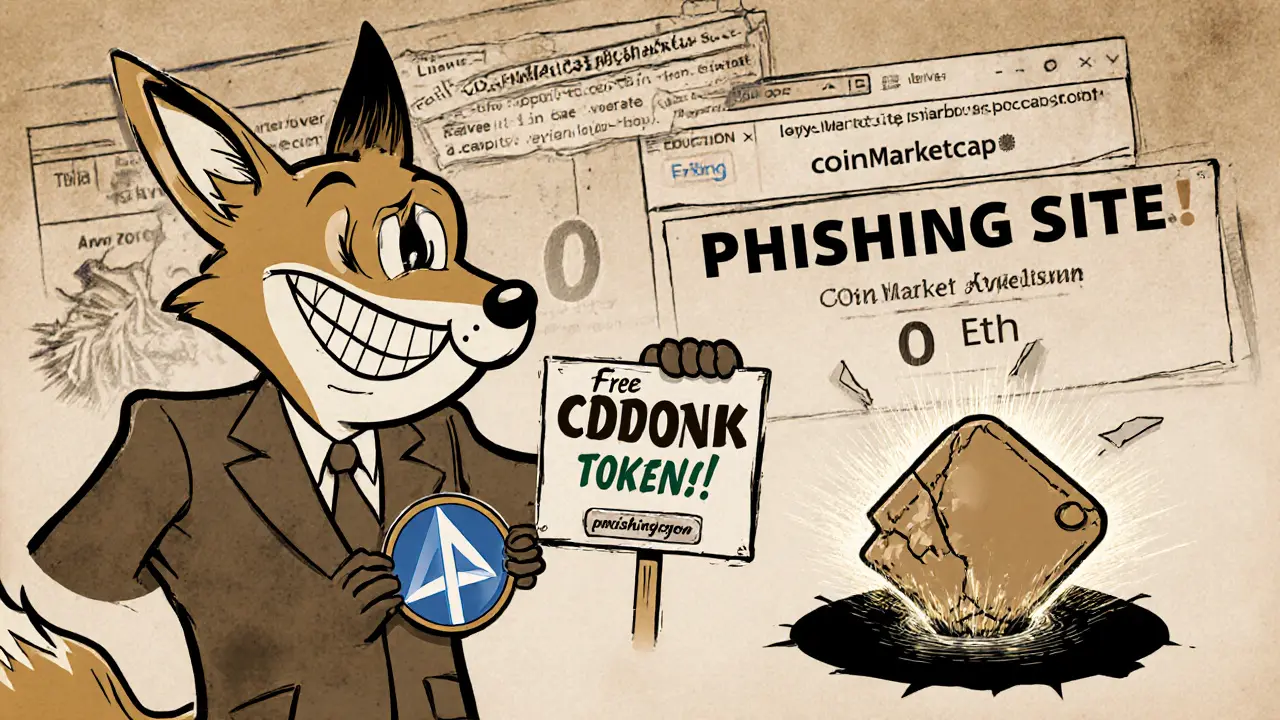CoinMarketCap Airdrop Scam: How to Spot and Avoid Fake Crypto Airdrops
When you hear CoinMarketCap airdrop scam, a deceptive scheme that impersonates the legitimate CoinMarketCap platform to steal crypto assets. Also known as CoinMarketCap phishing, it targets people who want free tokens by pretending to be an official giveaway. CoinMarketCap itself doesn’t run airdrops. It’s a price tracker. But scammers use its name because it’s trusted — and that’s exactly why you need to be careful.
These scams usually show up as fake websites, pop-up ads, or social media posts claiming you’ve won tokens from a CoinMarketCap event. They ask you to connect your wallet, enter your seed phrase, or pay a small fee to "claim" your reward. Once you do, your crypto vanishes. In 2024, over $18 million was stolen through similar fake airdrop schemes, according to blockchain forensic reports. The same tactics are used for crypto airdrop fraud, a broad category of scams where fake token distributions lure users into giving up control of their wallets. The most common red flag? Any request for your private key or wallet password. Legit airdrops never ask for that.
Another trick is fake CoinMarketCap-branded apps or browser extensions. They look real — same logo, same colors — but they’re built to steal. Some even copy real airdrop pages like Swash or TopGoal, which did partner with CoinMarketCap in the past. Scammers take those names and twist them. Always check the official website URL. CoinMarketCap’s real domain is coinmarketcap.com. Any variation like coinmarketcap-airdrop[.]com or coinmarketcap[.]io is fake.
And don’t trust influencers or Telegram groups pushing "exclusive" CoinMarketCap airdrops. Real partnerships are announced on CoinMarketCap’s official blog or Twitter. No private DMs. No urgency. No "limited spots left." If it feels too good to be true, it is. fake airdrop, a deceptive token distribution designed to harvest wallet credentials or funds. These aren’t just annoying — they’re dangerous.
You’re not alone if you’ve fallen for one. Even experienced crypto users get caught. The key is knowing what to look for: no ask for private keys, no upfront fees, no pressure, and always double-check the source. If you see a CoinMarketCap airdrop, go directly to coinmarketcap.com and search for it yourself — don’t click links from emails or ads.
Below, you’ll find real guides on how to spot these scams, what to do if you’ve been targeted, and how to safely claim actual airdrops like Swash, GeoCash, or TopGoal’s NFT drops — all without handing over your crypto. These aren’t theoretical tips. They’re lessons from people who’ve been burned — and learned the hard way.

